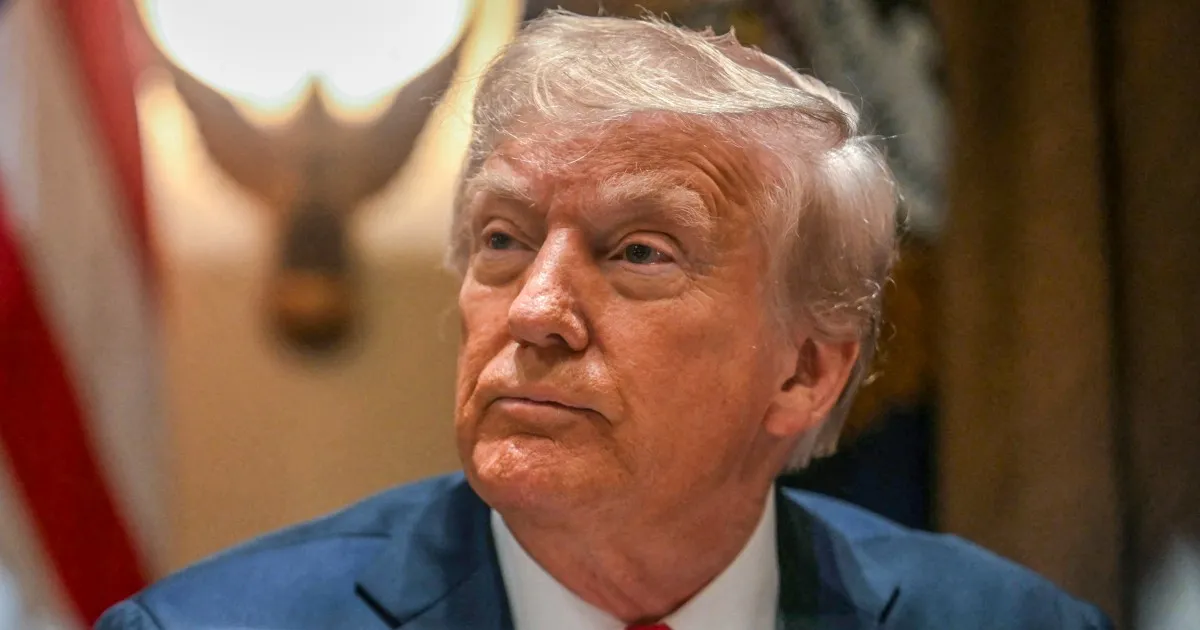
President Donald Trump has proposed a bold initiative to abolish the U.S. Education Department, advocating for a shift in education policy control to the states. However, this plan faces significant hurdles, with state officials expressing concerns about their preparedness to assume such responsibilities. According to an NBC News report, the White House is drafting an executive order aimed at dismantling the agency, although specifics remain elusive.
While the President cannot unilaterally dissolve a federal agency without congressional approval, his nominee for education secretary, Linda McMahon, indicated the administration's intention to present a viable plan to Congress. During a recent Cabinet meeting, Trump reiterated his desire to return educational control to the states, a concept long championed by conservatives.
Despite circulating ideas to either abolish or reduce the department's role, such as transferring responsibilities to other federal offices, a lack of clear directives has left state officials in a quandary. Lawmakers across party lines are bracing for potential changes, recognizing the substantial challenges they would face in absorbing new duties.
The primary concern revolves around the management of critical functions such as dispersing and overseeing funds for schools with special needs, including those serving impoverished or disabled students. Moreover, states would need to address substantial funding gaps previously managed by the federal agency. Joshua Cowen, an education policy expert, noted the potential downstream impacts on districts, particularly rural ones, should these changes proceed.
The U.S. Education Department currently oversees significant responsibilities, including managing the federal student loan portfolio and distributing funds to over 50 million students across nearly 100,000 public schools. Programs like Title I, which support low-income families, and initiatives ensuring access to education for disabled students, would need reallocation under state management.
The White House has shared limited information about its plans, with spokesperson Harrison Fields emphasizing the President's commitment to empowering states and prioritizing parental choice in education. Meanwhile, the Education Department has not responded to inquiries regarding potential changes.
Conservative proposals include transferring federal student loan management to the Treasury Department and moving civil rights enforcement to the Justice Department. Some advocate for converting federal K-12 funding into block grants, offering states more flexibility but potentially reducing federal oversight.
State lawmakers and education officials express apprehension about their readiness to handle these changes. Julie von Haefen, a North Carolina state representative, highlighted the precariousness of state funding and the potential devastation from losing federal support. Similarly, Iowa's Rep. J.D. Scholten acknowledged the lack of preparation in his state for such a transition.
Republican policymakers, though supportive of reducing federal involvement, also admit the difficulty in planning without detailed federal directives. Susie Hedalen, Montana's superintendent of public instruction, supports reducing federal oversight but acknowledges the challenges in anticipating specific funding cuts.
Public education advocates warn that transitioning to block grants could lead to increased funding for private schools, potentially at the expense of public education. Such changes could undermine civil rights protections, as private institutions receiving federal funds are currently exempt from certain anti-discrimination laws.
Democratic lawmakers in states like Vermont and Connecticut are proactively assessing potential impacts on education funding. Vermont's Rep. Mary-Katherine Stone emphasized the need to understand current funding sources and potential gaps that could arise from federal cuts.
Current Education Department employees and advocates caution that reducing the agency's role in managing Title I and disability funding could threaten the federal guarantee of a free and appropriate public education. They argue that without federal oversight, states may struggle to uphold educational standards and accountability.